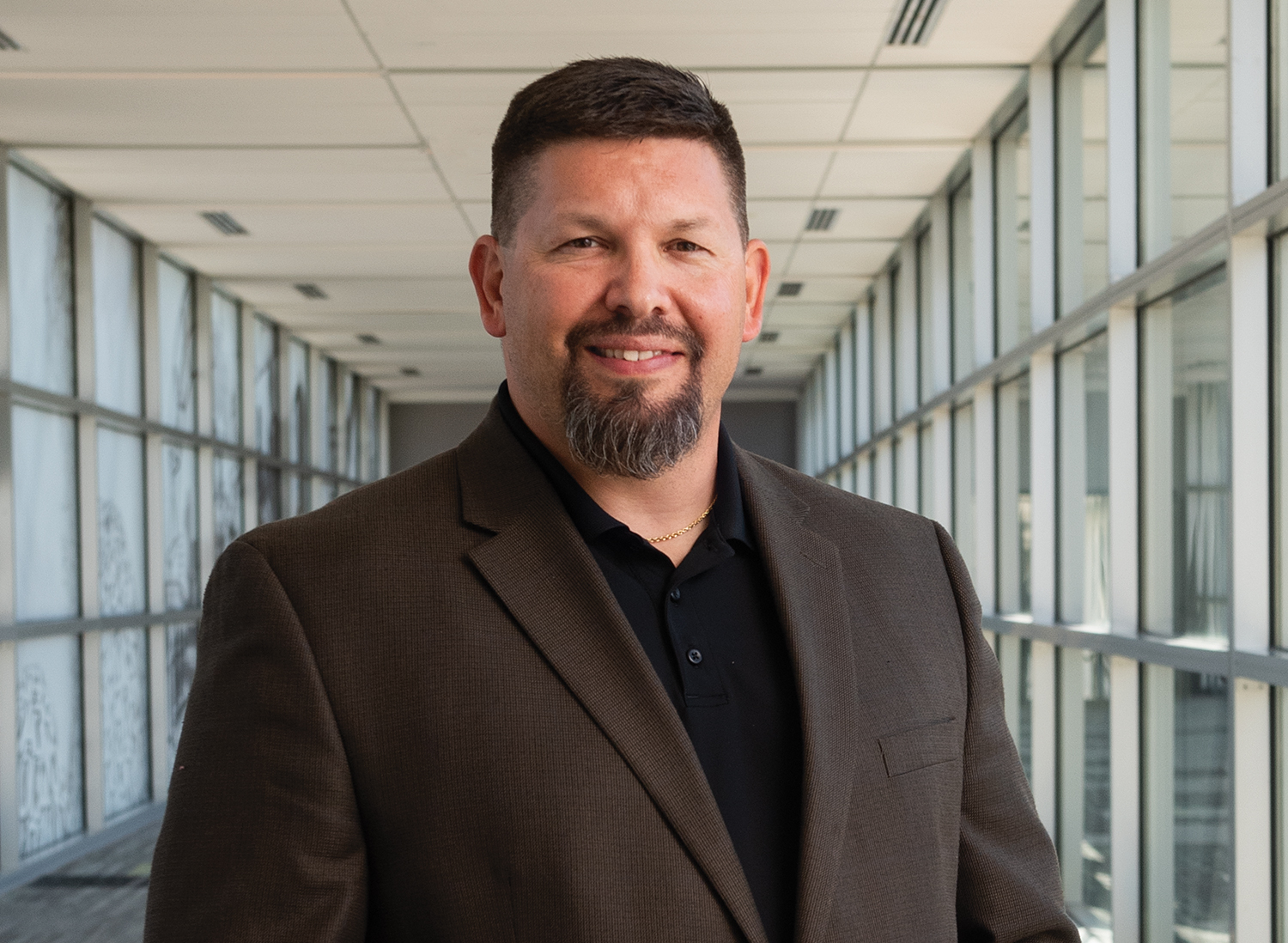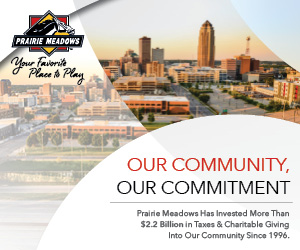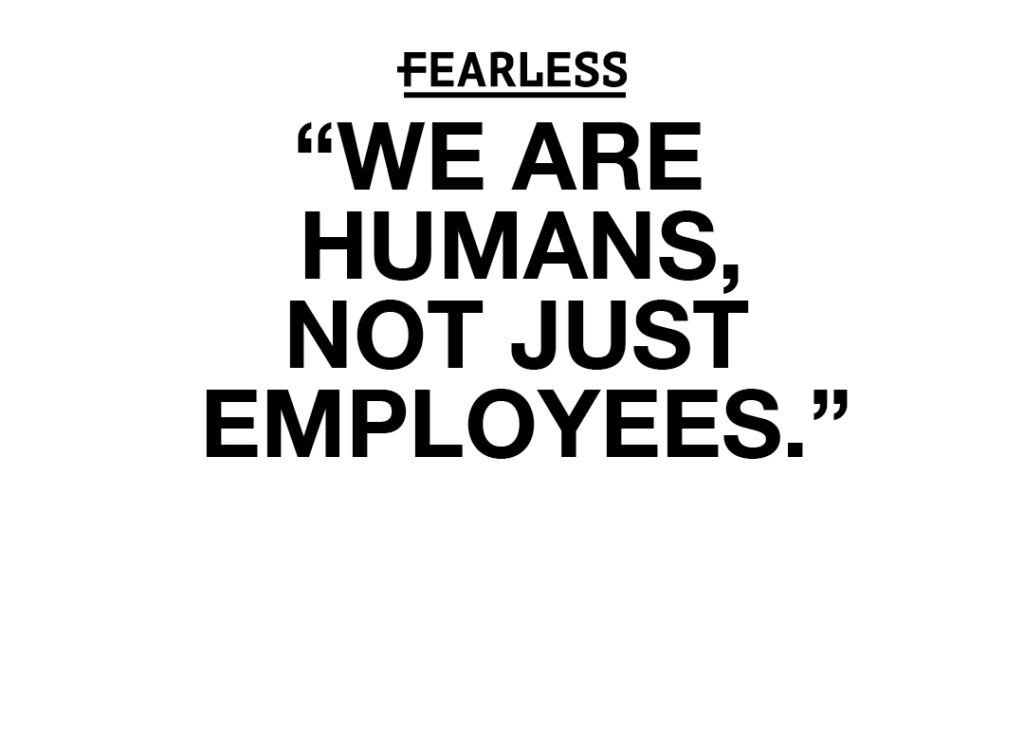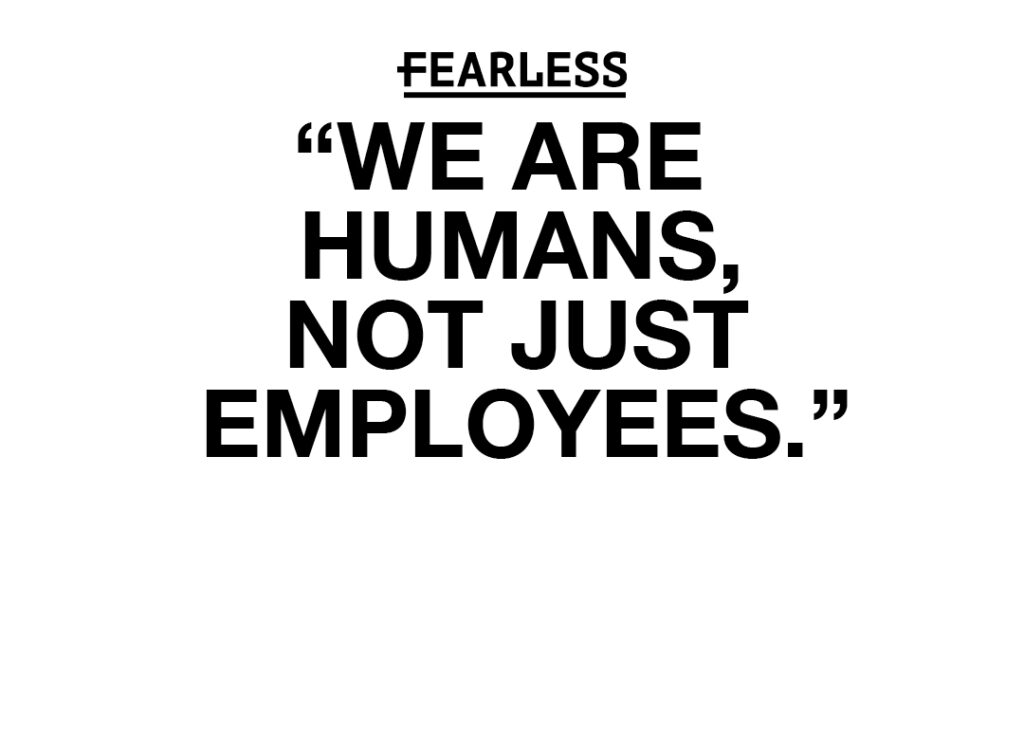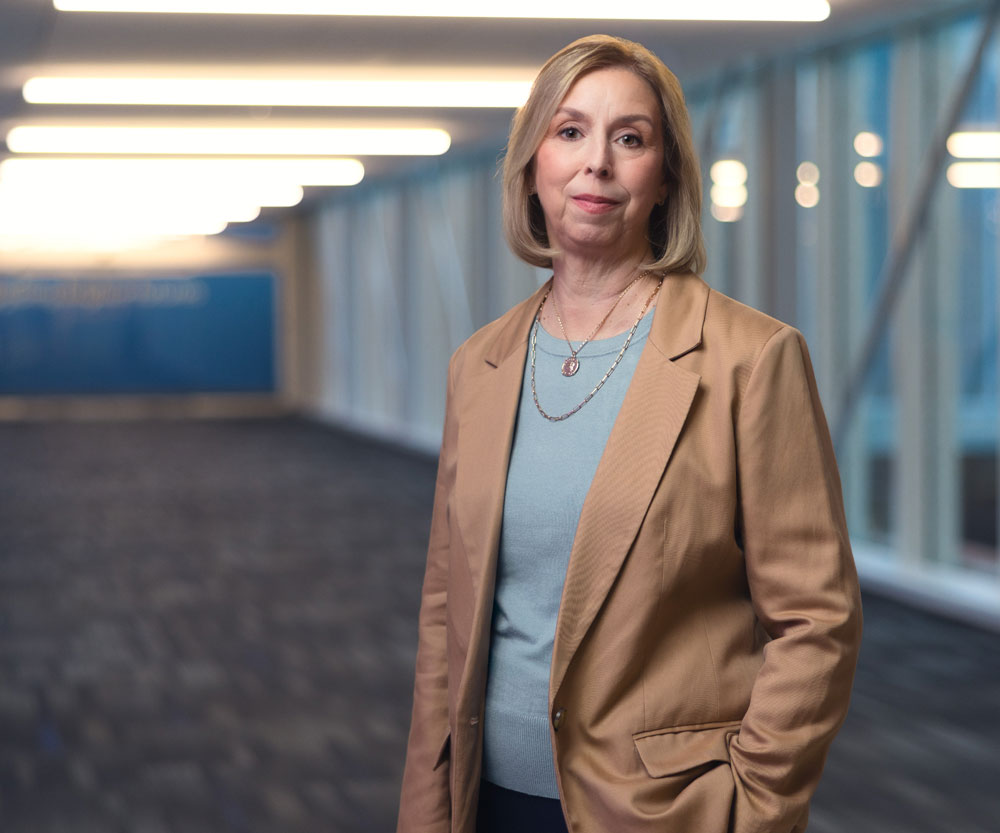HR Pro of the Year: Jeff Vogts
How to set goals, train future leaders and be an employee advocate
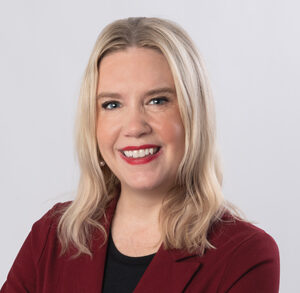
Lisa Rossi Nov 1, 2024 | 6:00 am
8 min read time
1,887 wordsBusiness Record Insider, HR and LeadershipJeff Vogts, the 2024 Dentons Davis Brown Human Resources Professional of the Year, says there’s a lot that goes into his professional success. For example, he treats people the way he wants to be treated. He values everyone’s opinion.
And then there’s just a little bit of crazy.
“When I say a little bit of crazy, it’s in the fact of trying to tackle big problems, trying to make big changes,” said Vogts, the vice president of human resources, talent development and business excellence at Grinnell Mutual.
The award, launched by the Business Record in 2020, is designed to highlight an outstanding HR professional from Central Iowa for their professional accomplishments and community engagement.
Vogts sat down with the Business Record to share more.
Responses have been lightly edited for clarity and brevity.
You like to look out for employees both physically and mentally. Do you think that’s the role of a business to do that?
HR should be both an employee advocate and a business advocate, because you can’t have one without the other. … I try to take a human approach. … My team and I have implemented a lot of things that have helped that. For example, we upgraded the performance review process. Back in 2017, I stood up in front of the senior leaders and said, ‘I know this is something tried and true that everybody believes in. If you trust me, here’s all the research I’ve done on this. Here’s the theory I have for my master’s degree. I really want to pilot this. Here’s what I think will benefit from this.’ And the engagement has done nothing but go up since then. We recently did a survey with our employee population and said, ‘How do you like the new performance process?’ And it was off-the-charts positive. Another interesting trend, written warnings have gone down significantly because of it. There are other variables in there too. It’s not just because we no longer have the performance reviews. We transitioned to one-on-one coaching. I believe employees are responsible, they are accountable, they want to do the right thing. Everyone wants to help the business succeed.
What about the performance review in your master’s degree work did you find was obsolete?
What I think is obsolete is the old method of setting goals for the year, and saying, “Here’s my yearly goal.” Businesses are too dynamic now. Things change sometimes monthly, sometimes weekly. New challenges and new priorities. That’s part of it. I think it’s also obsolete to not have that interaction with your leadership and not have that relationship. Gone are the days when I used to get my list of objectives sent out and I’d work diligently on those objectives, and nobody says anything. You come to your performance review and they say, “Yeah, that was great. I wish you would have done this, this and this.” You‘re like, “You didn’t tell me that. I could’ve added that in as I was going along.” That whole process has to be way more interactive. Way more mutually agreeable. And I think empowering the employee.
Tell me how you kept your employees connected to Grinnell Mutual during COVID.
We focused a lot of training for the leaders. How do you implement remote work? Part of it is trusting employees are doing their job. We don’t monitor and check up on people. You saw the Wells Fargo article about firing … people because they weren’t at their computer. Instead, we look at the metrics of what is getting done. … And just having that flexibility with employees. I think they really appreciate that. If my job has the flexibility, I can do asynchronous work. It doesn’t matter if I work at 8 at night, 8 to 10 on that two-hour project, or 8 to 10 in the morning. If your job has that flexibility, as long as you get the work done, you are in control when you do it.
I noticed you have implemented remote work at a time when many employers are begging employees to come back to the office. But you found a lot of success with remote work, can you talk about that?
We found a ton of success from remote work. Our engagement has gone up. … We also had employees come back and say things like, “I feel like I have true work-life balance.” … It just gives people that freedom and flexibility. … One of the other things we implemented at the time of remote work was this strategy of creating meaningful connection. We’ve always had a really strong culture of connecting with people, but my fear was, and our fear on the HR team, people would no longer feel that connection because they are working remotely. What we didn’t want to have happen was for people to log in and it be like OK, did you get assignment a, b and c done? It’s perfectly fine to take the first three to five minutes and just talk about life. … And we do quarterly get-togethers. Each leader has their own budget and can get people together quarterly. My team gets together monthly. The leadership gets together monthly for their check-in. And we do our quarterly events, just so people remember, we care about you. … We want to hear from you.
How do you counsel people to achieve work-life balance, and how have you achieved work-life balance?
I’m Generation X. I went to the Iowa Women Lead Change conference, and they were talking about Generation X, and they are all about efficiency, and they are all about performance. And I also have this Six Sigma side of me that’s all about efficiency and performance. I had to set restrictions on myself, because I found I was putting in way more hours on a work-from-home basis than at the office. It would be nothing for me to log on at 7 or 8 in the morning and work until 7 or 8 at night. … I worked during lunch. I didn’t go outside. What I’ve had to do for myself is set some boundaries. I’m going to log on at 7 or 8 a.m., log off at noon. I’m going to make sure I take a walk. And then trying to make sure I’m off the computer as much as possible when my kids get home. … What we tell leaders is … be flexible where you can be flexible. If the work doesn’t require 8 to 3 or 8 to 5, butt in seat, don’t require that. Don’t make up requirements that don’t exist. Explain what the objective of the job is, the importance of the role. Explain why we need what we need, and ask for commitment. And our employees just step up. We have such a good group of people.
I want to hear more about the mental health wellness clinic you established.
One of the trends I became concerned about, not just during COVID, but before that, was the mental health and wellness side of the wellness journey. We had a couple things happen at work where people were looking for services. They came forward and said, “My family member needs this service and we can’t find it. It’s six months before we can see someone.” And you just see the mental toll that takes on someone. And how hard that is. … We came up with the idea, what if we hired our own mental health counselors? We have an on-site clinic. Back when we were working in the office, you could walk across the parking lot if you had a sore throat, Hy-Vee would bring the antibiotics. When we went to work from anywhere, nobody was driving in to the clinic, and so we said how can we make a pivot? … We ended up partnering with UnityPoint Health. UnityPoint hired a couple counselors for us. We said, “We are going to put you on the payroll. And we want you available for our employees and their families.” So if they are an employee at Grinnell Mutual, or their family, we want them to have direct access.
I see companies struggling with how many diversity, equity and inclusion efforts to deploy. How are you threading that needle at Grinnell Mutual?
We call it belonging and inclusion, and we started that just before COVID. We started it when the whole DEI effort was initiating. And we did it differently. I brought in an improv group. First we had a committee, OK, what are we trying to accomplish? We’re trying to accomplish a work environment where people can be their real selves, really come in and be who they are. … They have a voice, they make a difference. That’s what we want to continue. And we felt like, yeah, we have a lot of that right now. So how do we add to that? How do you augment that? How do you make it better? … One of the things we settled on is we brought in an improv group and we had them do some improv, show people how everybody thinks differently. … Now we have a committee that really focuses on that. We‘re really focused on the resource group. How do we make sure that you are connected, you feel connected to the workforce and that you have something in common and you form those relationships? We also work with the leadership to make sure everybody is heard from.
I saw in your nomination materials how you bring a real sense of humor to work and bring your dad jokes. Why is that an important part of the workplace?
I’ve done a lot of hard things in the HR world. When I was in my mid-to-late 20s, I was stressed out and I was like, “Hey, we need to have some fun. Where did the fun go? Why aren’t we laughing and having some enjoyment with our work?” So I started thinking, “How can I, as a leader, how can I set that tone? How can I set the tone for professional, yet fun? How do we do that?” One of the ways I found to do that is let them see I’m a human. I’m not perfect. I struggle just like you struggle. I started telling dad jokes. … I always try to make them thematic with the month, so for October, I said the other day, “Why did the scarecrow get a blue ribbon?’ I said, ‘He’s outstanding in his field.”
What are the big trends in HR?
The trends that pique my interest right now are the trends on engagement. I read a recent trend that people are seeing engagement go down. I’m like, “Hmmm, I wonder why?” Is it the back-to-the-office orders? Is it something else? What’s causing it? What’s the underlying factor that’s driving that? I don’t know the answer. We are not seeing that in our trend. … I’m very interested in the trends of work-from-home versus bringing-people-back. I’m like, ‘How is that going to work?’ I’m going to be able to pick their talent. We’re going to be able to hire the best of the best with our flexibility and what we are doing.

Lisa Rossi
Lisa Rossi is a staff writer at Business Record. She covers innovation and entrepreneurship, insurance, health care, and Iowa Stops Hunger.

